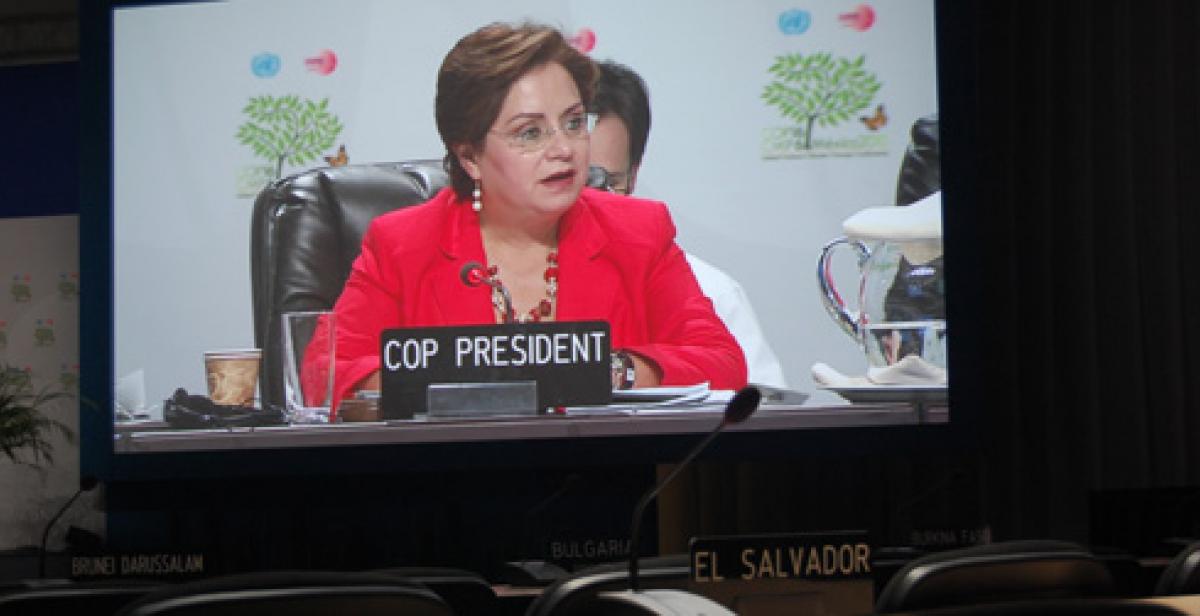Maggie von Vogt gives a personal reflection at the start of the UN climate talks from Cancun.
It’s the opening press conference of the UN climate talks in Cancun, Mexico, and Christina Figueres, Executive Secretary of the talks, says, “Cancun can launch a new era for global action on climate change, where each year brings increasingly effective answers to keep humanity on track to a safer future.”
It’s a great phrase. But speaking with colleagues, representatives from civil society, and friends, I’m hearing a different perspective. Very little is expected from this conference.
One major theme that can be felt in these first days of the two-week conference is an earnest effort to convince participants that they can and should trust in the multilateral process of the UNFCCC.
Since Copenhagen talks last year, trust has been an ongoing issue in the climate process. In the final moments of Copenhagen the infamous “Copenhagen Accord” appeared as if it were an official text. But it undermined the multilateral process and created an environment of mistrust and even despair.
So earlier this week the president of the talks, Patricia Espinosa Cantellano, gave a special address to those invited to observe the official negotiations. Time and again she repeated words like ‘transparency’, ‘open’, and ‘dialogue’. Yet at the same time the most optimistic reference she made was that Cancun could be “a start”.
So I wonder: how long ago did we start trying to work on the problem of climate change?
Progressio Development Worker Anne Bordatto is based in Honduras and works on climate change issues with Progressio partners in El Salvador, Nicaragua, and Honduras. Over the past year, she has visited and worked with lots of Progressio partner organisations that work on environmental themes. She knows the reality faced by vulnerable regions like Central America.
I asked her for her opinion on what can be achieved in Cancun. “I do not think that any major decisions will be made,” she said. “I think that they will try to decide how countries like Mexico, India, Brazil, and China will start to make commitments to reduce their emissions.
“And I think that Europe is in a difficult position as it seeks to address its historic responsibility and reduce its emissions for two reasons. First, it is basically alone in doing so because other developed nations are stalling. And secondly because its economies are weak. I think they realise that we are headed towards a dead end.”
It feels as though we are just getting started here in Cancun, but the tone is already being set. Attempts are being made to establish trust and most acknowledge that the problem of climate change is urgent and of utmost importance.
So I hope to see advances being made and success for this process, but I think it is important to remember all the work being done by civil society and communities throughout the world which will continue on. For me, that is a crucial element in facing the impacts of climate change in a way that is just, sustainable, and holistic for people and the planet.
--
Photo: Patricia Espinosa Cantellano, President of the UN climate talks. Credit: Maggie von Vogt



